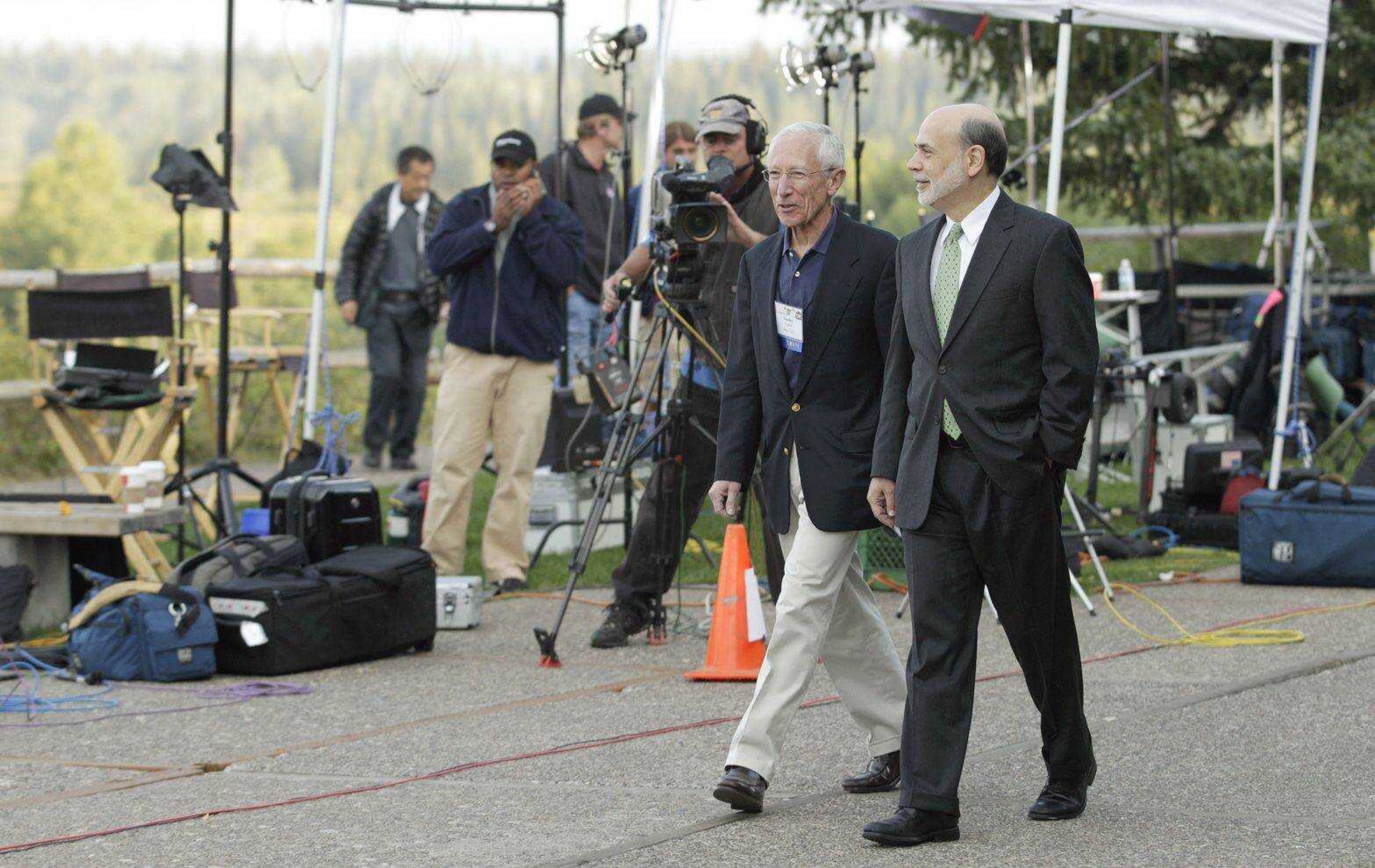JACKSON HOLE, Wyo. -- Chairman Ben Bernanke sent a clear message last week that the Federal Reserve will do more to help the still-struggling U.S. economy.
His remarks left two questions: What exactly will the Fed do? And when?
Bernanke described the U.S. economy's health as "far from satisfactory" and noted that the unemployment rate, now 8.3 percent, hasn't declined since January.
He stopped short of committing the Fed to any specific move. But in his speech to an annual Fed conference in Jackson Hole, Bernanke said that even with interest rates already at super-lows, the Fed can do more.
He acknowledged critics' arguments that further Fed action could fan inflation and inject other risks. Yet after raising such arguments, Bernanke proceeded to knock them down.
Some economists predict the Fed will unveil some bold new step as soon as its meeting Sept. 12 and 13, possibly a third round of bond purchases meant to lower long-term interest rates and encourage more borrowing and spending. That policy is called "quantitative easing," or QE.
In two rounds of QE, the Fed bought more than $2 trillion of Treasury bonds and mortgage-backed securities. Many investors have been hoping for a third round -- a QE3.
"Bernanke has taken a further step along the path to more policy stimulus, most likely a third round of asset purchases (QE3) to be announced at the mid-September FOMC meeting," said Paul Dales, senior U.S. economist at Capital Economics.
Others expect something less dramatic: a plan to keep short-term rates near zero into 2015 unless the economy improves, perhaps followed by bond purchases later.
In his speech, Bernanke assessed the economy's weaknesses, defended the extraordinary steps the Fed has taken to date and insisted it can do more.
Investors took time to digest Bernanke's speech but in the end seemed pleased. After his remarks were released at 10 a.m. Eastern time, the Dow Jones industrial average shed some of its earlier gains. Then it rose more than 100 points. It closed up about 90 points, or 0.7 percent.
Bernanke acknowledged that the Fed is operating in essentially uncharted territory.
Traditionally, central banks stimulate weak economies by pushing down short-term rates. In December 2008, the Fed slashed such rates to record lows. Yet even with short-term rates as low as they can go, the economy still needs help.
Central banks can take "nontraditional" measures when they've run out of conventional ammunition. And under Bernanke the Fed has tried many.
It's made its public communications more explicit. For example, it's sought to embolden investors and businesses by saying short-term rates will stay low as long as the economy is weak. The Fed originally said it expected to keep rates "exceptionally low" through mid-2013. It extended that target to late 2014.
And besides embarking on two rounds of QE, the Fed has sold short-term Treasurys and replaced them with long-term Treasurys. That shift is intended to push long-term rates down further.
Bernanke argued Friday that collectively, such measures have succeeded. He cited research showing that two rounds of QE had created 2 million jobs and accelerated U.S. economic growth.
Even if the Fed does act further, many analysts doubt it would make much difference. Interest rates, both short- and long-term, are near historic lows. Borrowing -- for those who have the credit -- has never been cheaper. Yet the economy remains in a rut.
Critics have also argued that besides escalating inflation later, the Fed's easy-money policies could push individuals and institutions into riskier investments. That, in turn, could destabilize the financial system.
Bernanke conceded that nontraditional policies carry risks. But he argued that these risks are "manageable." He noted that inflation remains around 2 percent despite "repeated warnings that excessive policy accommodation would ignite inflation." And he said "we have seen little evidence thus far of unsafe buildups of risk or leverage."
In his speech to the annual conference sponsored by the Federal Reserve Bank of Kansas City, Bernanke seemed to embrace a dual mission: Rebut arguments against further Fed action -- and build a case for it.
He echoed what the Fed had said in a statement after its last policy meeting July 31 and Aug. 1: that it will act further, as needed, to stimulate economic growth and job creation.
In the weeks since then, somewhat better economic news had led some analysts to suggest that the Fed might now feel less urgency to act. But Friday, Bernanke didn't mention any recent economic improvements. And his reiteration of the Fed's readiness to provide more help suggested that his view of the economy remains dim.
He called the weak job market "a grave concern" that causes "enormous suffering," wastes talent and can inflict lasting damage on the economy.
Bernanke and other Fed officials are expected to closely review the August jobs report, which comes out at the end of this week, to see how urgently the economy needs help. The consensus forecast of economists is that employers added 135,000 jobs in August, according to a survey by FactSet.
"The Fed sounds about as close as they can get to taking action, short of sitting around the table in September and voting for it," said Chris Rupkey, chief financial economist at the Bank of Tokyo-Mitsubishi UFJ.
"It appears that only a big jobs report number, [200,000 or more new jobs in July] and a sharp decline in the unemployment rate next week could stop them from taking additional steps."
Connect with the Southeast Missourian Newsroom:
For corrections to this story or other insights for the editor, click here. To submit a letter to the editor, click here. To learn about the Southeast Missourian’s AI Policy, click here.







